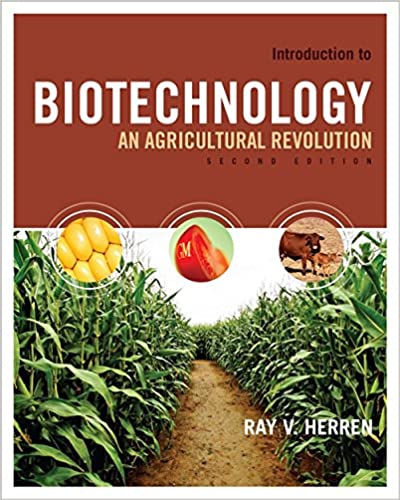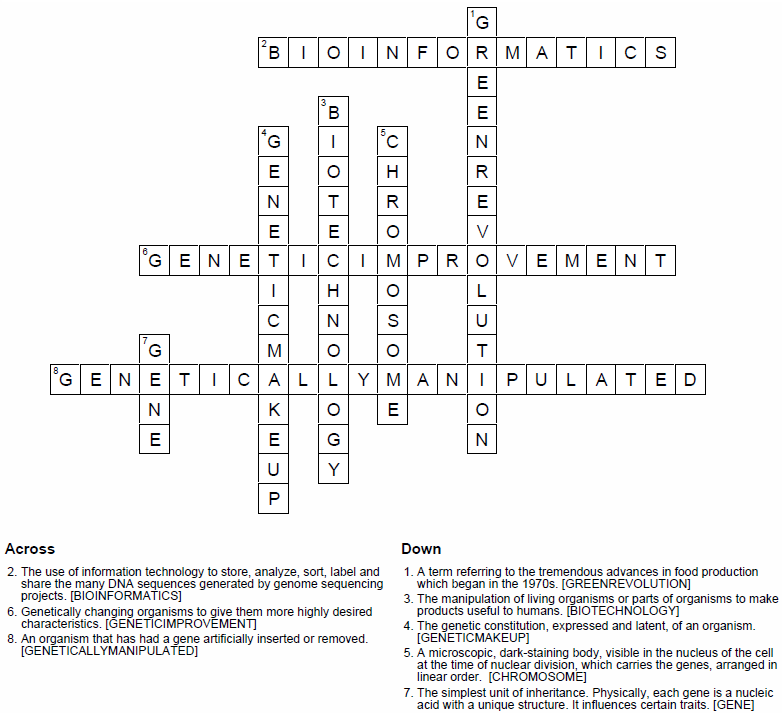Biotechnology
Uni ePrep Course
Also Available at SF@NS LXP

Biotechnology is a fascinating field that offers numerous career opportunities. If you’re interested in pursuing a degree in this or related field, then the Biotechnology ePrep course offered by NTU is an excellent starting point. Even for others, the knowledge gained from this course will provide excellent window in this exciting life-science related technology. This course is specially designed to help NSF, NSmen, and other students prepare academically for their undergraduate studies, whether in Singapore or overseas.
This eLearning course is developed in collaboration with the renowned book publishers, Cengage, and it provides you with a popular biotechnology textbook and excellent learning materials at no additional cost. The retired NTU professor acting as the personalized tutor is also a great advantage. You can reach out to him via email messaging at any time during the course and even beyond as you progress to university studies.
Biotechnology is one of the ten uni ePrep courses by NTU that will soon also available at SkillsFuture@NS LXP. Currently you can sign up for the course via NS Portal (if you have available NS ePrep Credits) or in NTU’s site directly.
Biotechonoly ePrep Course – Main Contents
1. The Phenomena of Biotechnology
- Define biotechnology.
- Describe how biological technology differs from technology derived from physical science.
- Define genetic engineering.
- Explain why biotechnology is important to agriculture, health care, and the environment.
- Explain how biotechnology is used.
2. Cells: The Foundation of Life
- Explain why cells are the foundation of life.
- List the different types of cells.
- Distinguish between prokaryotic and eukaryotic cells.
- Describe the different components of cells.
- Explain how cells reproduce by mitosis.
- Explain the process of meiosis.
- Define and describe stem cells.
3. The Principles of Genetic Transfer
- Explain the function of DNA.
- Discuss nucleotide sequencing.
- Explain the role of genes in the transfer of characteristics.
- Discuss the concept of gene interaction.
- Define the process of transcription.
- Define the process of translation.
- Discuss the mapping of the human genome.
4. Producing Genetically Modified Organisms
- Explain the function of DNA.
- Discuss nucleotide sequencing.
- Explain the role of genes in the transfer of characteristics.
- Discuss the concept of gene interaction.
- Define the process of transcription.
- Define the process of translation.
- Discuss the mapping of the human genome.
5. Animal Cloning
- Explain the function of DNA.
- Discuss nucleotide sequencing.
- Explain the role of genes in the transfer of characteristics.
- Discuss the concept of gene interaction.
- Define the process of transcription.
- Define the process of translation.
- Discuss the mapping of the human genome.
6. Plant Cloning
- Explain the function of DNA.
- Discuss nucleotide sequencing.
- Explain the role of genes in the transfer of characteristics.
- Discuss the concept of gene interaction.
- Define the process of transcription.
- Define the process of translation.
- Discuss the mapping of the human genome.
7. Biotechnology in Plant Science
- Explain why insect control is so important in plant production.
- Describe how bacteria are used to create insect resistance in plants.
- List the advantages of plants that have been genetically modified to make them insect resistant.
- Explain how Bacillus thuringiensis (Bt) kills insects and remains harmless to humans.
- List crops that have been engineered to contain the Bt gene.
- Explain how Bt crops help alleviate mycotoxins.
- Explain the reason for making crops herbicide resistant.
- Describe the problems caused by weeds in crops.
- Describe how plants are genetically engineered to prevent viral infections.
- Describe how crops can be made tolerant of climatic conditions through genetic engineering.
- Describe how crops are being engineered for biofuels production and plant-made products.
- List the ways in which biotechnology, such as genetic engineering, is currently being used in producing plants.
8. Biotechnology in Animal Reproduction
- Explain why insect control is so important in plant production.
- Describe how bacteria are used to create insect resistance in plants.
- List the advantages of plants that have been genetically modified to make them insect resistant.
- Explain how Bacillus thuringiensis (Bt) kills insects and remains harmless to humans.
- List crops that have been engineered to contain the Bt gene.
- Explain how Bt crops help alleviate mycotoxins.
- Explain the reason for making crops herbicide resistant.
- Describe the problems caused by weeds in crops.
- Describe how plants are genetically engineered to prevent viral infections.
- Describe how crops can be made tolerant of climatic conditions through genetic engineering.
- Describe how crops are being engineered for biofuels production and plant-made products.
- List the ways in which biotechnology, such as genetic engineering, is currently being used in producing plants.
9. Biotechnology in Medicine
- Explain why insect control is so important in plant production.
- Describe how bacteria are used to create insect resistance in plants.
- List the advantages of plants that have been genetically modified to make them insect resistant.
- Explain how Bacillus thuringiensis (Bt) kills insects and remains harmless to humans.
- List crops that have been engineered to contain the Bt gene.
- Explain how Bt crops help alleviate mycotoxins.
- Explain the reason for making crops herbicide resistant.
- Describe the problems caused by weeds in crops.
- Describe how plants are genetically engineered to prevent viral infections.
- Describe how crops can be made tolerant of climatic conditions through genetic engineering.
- Describe how crops are being engineered for biofuels production and plant-made products.
- List the ways in which biotechnology, such as genetic engineering, is currently being used in producing plants.
10. Biotechnology in the Food Industry
- Explain why insect control is so important in plant production.
- Describe how bacteria are used to create insect resistance in plants.
- List the advantages of plants that have been genetically modified to make them insect resistant.
- Explain how Bacillus thuringiensis (Bt) kills insects and remains harmless to humans.
- List crops that have been engineered to contain the Bt gene.
- Explain how Bt crops help alleviate mycotoxins.
- Explain the reason for making crops herbicide resistant.
- Describe the problems caused by weeds in crops.
- Describe how plants are genetically engineered to prevent viral infections.
- Describe how crops can be made tolerant of climatic conditions through genetic engineering.
- Describe how crops are being engineered for biofuels production and plant-made products.
- List the ways in which biotechnology, such as genetic engineering, is currently being used in producing plants.
B. Biotechnology Optional Chapters
The materials in these chapters are also available, except they will not be tested for the purpose of certification for having completed this e-Prep course.
1. The Historical Development of Biotechnology
2. The Principles of Scientific Research
3. Biotechnology in Ecology
4. Consumer Concerns about Biotechnology
5. Ethical Issues in Biotechnology
6. Careers in Biotechnology
Detailed Learning Objectives of all the chapters are given in Learning Objectives
Biotechnology ePrep Course – What You Get
I. Free Textbook
“Introduction to Biotechnology” is a very popular introductory textbook on biotechnology, authored by Ray V Herren, 2nd Ed.
II. Free Consultation
A retired NTU professor is acting as the tutor.
III. Materials Online
1. Notes, video lessons and PowerPoint files.
2. Answers/solutions to all questions/problems in the textbook.
3. Online exercises.
4. Glossary & Cross-Word Puzzles
IV. Digital Certificate
A digital certificate will be issued if you have successfully completed the ePrep course and passing all the tests at the end of each of the ten compulsory chapters.
Biotechnology ePrep Course Materials – Samples
1. Video Lesson (Meiosis)
2. Cross-Word Puzzle (The Phenomena of Biotechnology)

3. Discussion (Biotechnology in Medicine)
Question:
Identify and describe the three main types of organ transplants.
Answer:
The three main types of organ transplant are allotransplantation, autotransplantation, and
xenotransplantation. Allotransplantation is the transplant of an organ from a human donor, autotransplantation is using adult stem cells to repair and replace damaged tissue, and xenotransplantation is engineering animal organs to use for human tissue and organ replacement.
4. Glossary
5. Fill in the Blank
One of the greatest modern tools for treating and curing diseases is _genetic engineering _ of cells to preduce therapeutic _drugs_ and _vaccines_ through _biomanufacturing_.
Note: There are lots of useful course materials available at the course site that will make learning efficient and fun.
Biotechnoogy ePrep course – Who Should Take?
The Biotechnology e_prep course is an essential program for students pursuing degrees in a variety of fields such as biotechnology, biological sciences, pharmacy, medicine, dentistry, nursing, agriculture, food technology, material sciences, and environment. This comprehensive course provides a strong foundation in biotechnology and is a valuable resource for students seeking to improve their knowledge in this important field.
In light of the ongoing Covid-19 pandemic, even students not pursuing degrees in these fields can benefit from this course. The knowledge gained through this program can help individuals better understand current events and how biotechnology plays a crucial role in combating pandemics and other health crises.
Moreover, this course is an excellent opportunity for individuals not planning on attending university for various reasons. By completing the course, they can acquire valuable knowledge and demonstrate their ability to complete a university-level program. The course completion certificate can serve as a valuable asset when applying for future employment opportunities.
At the Biotechnology e_prep course, all are welcome, regardless of their prior academic background. The course is designed to provide students with the necessary guidance to excel in the program, and there are no prerequisites to enroll. With its popularity increasing, the Biotechnology e_prep course has become a must-have for anyone seeking to expand their knowledge in this exciting and rapidly growing field.
Biotechnology ePrep Course – How to sign up?
If You Are an NSF or NSman
There are two methods:
1. SkillsFuture@NS Scheme
You have to activate your SF@NS LXP account at https://go.gov.sg/activatesfnslxp. Note that there is no upper limit to the number of courses you can sign up for. However, your SF@NS LXP account is valid for only two years, but you should activate your SF@NS LXP account as soon as you are in NS so as to enable you to take up a few university-preparation courses such as this Biotechnology course before you start your university studies.
2. NS e_Prep Scheme
Please sign up with NS Portal to enjoy the NS e-PREP subsidy. Please go to “Access ePREP”, search for “NTU” as the course provider, then select “Biotechnology” among the e-PREP courses. Your e-PRP credits may limit you to sign up for one course only.
For Others
Please sign up with NTU PaCE directly. The course fee is S$342.40, inclusive of the textbook. If you are located outside Singapore you may have to pay for the postage for the textbook.
Biotechonoly ePrep Course Duration
The official duration of the course is three months, but may be extended upon request. Unofficially however, the support by the tutor extends beyond the official course period. Also, most of the course materials can be downloaded for later study.
Please Share this Biotechnology ePrep Info Page
Like it? Please share the information about this NTU ePrep course for NSFs, NSMen, and others with your friends.